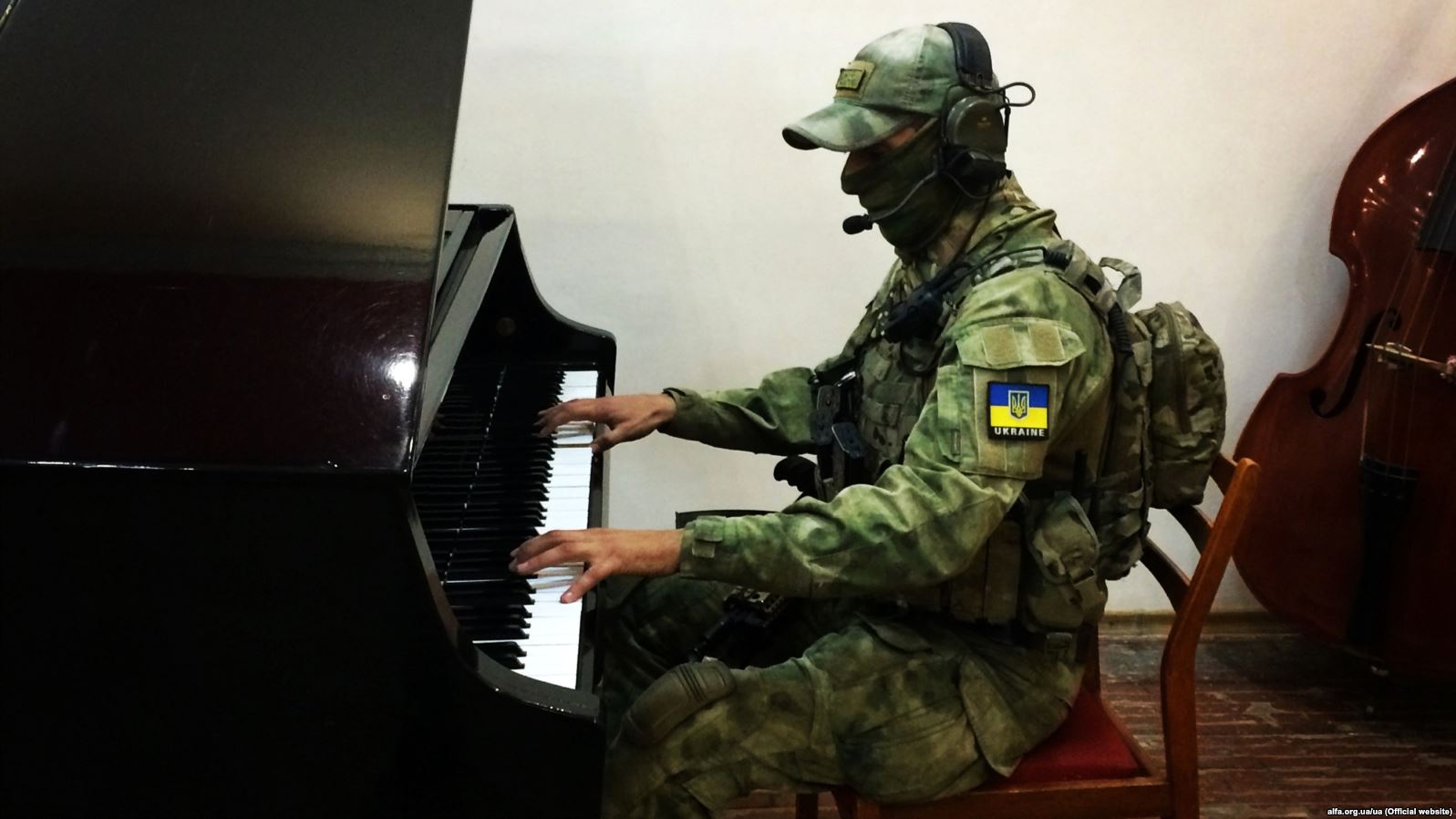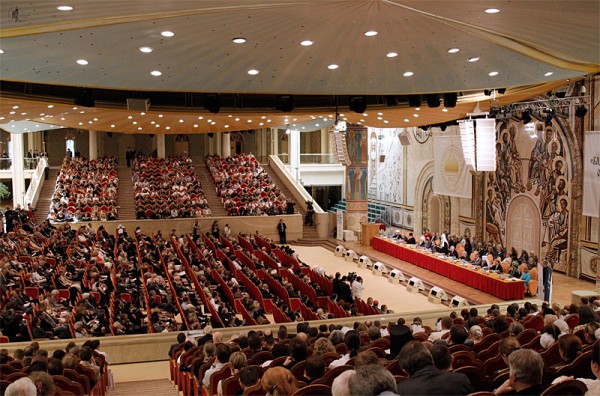Russia has launched its latest information and psychological warfare campaign, this time to torpedo mobilization in Ukraine, as can be seen by intensified activity on social networks and mass media.
ITAR-TASS reports that Russian President, Vladimir Putin, said on January 26th that Moscow might extend the period of stay on Russian territory for Ukrainians of conscription age. Russia’s Federal Migration Service said
on Wednesday, January 28 it has extended the period of stay in Russia for Ukrainian citizens of the recruitment age for more than 90 days. "Being guided by humanitarian considerations, Russia’s Federal Migration Service has taken a decision to extend terms of stay for the abovementioned categories of Ukrainian citizens," the press service of the Federal Migration Service said. According to the service’s statistics, more than 2.430 million Ukrainian citizens are currently staying in Russia, of whom 1.172 million are men of recruitment age.
The Security Bureau of Ukraine (SBU) believes that the mobilization of social networks, particularly Russia's answer to Facebook, Vkontakte, is a strategy prepared by Russia's own security service, the FSB. "This is another 5th column" said SBU advisor, Markian Lubkivskiy.
In search engines such as Google (even in the Ukrainian service) and the Russian search engine, Yandex (Ukrainian service also), when you type mobilization, the top news will include articles about huge issues with mobilization in Ukraine, stories that men are refusing to join up, articles on how to evade mobilization, and even messages of 'gratitude to President Putin from Ukrainian conscripts, for providing the opportunity to stay in Russia to avoid mobilization.' Even a special source on how to avoid mobilization, called Anti-mobilization, appeared on the internet. Legal advice how to avoid mobilization in Ukrainian army on legal grounds and free of “charge” [without bribes] appeared
in Internet. Mig News (Ukraine), announced it in the Ukrainian TV Channel News One on January 14 – 15, 2015. Next day a series of articles appeared in respected Ukrainian mass media about corruption during mobilization in Ukrainian army including bribes to avoid mobilization, poor supplies of the Ukrainian army, no clear and adequate social guarantees to participants of anti-terrorist operation.
Some other Ukrainian TV channels, for example channel ZIK of Lviv, have actively joined the anti-mobilization campaign in their program, 'Direct Speech: Mobilization and Connected Issues”, with their outspoken critical review of mobilization and national leadership. During the program, the actions of Russian backed terrorists in the DNR and LNR were similarly compared to actions during the Maidan in Lviv, when government buildings were seized. But at the same time, ZIK contrarily published on its internet page an investigation into Russia using provocations and propaganda to try and wreck mobilization in Ukraine.
Unfortunately, Ukraine doesn't seem fully prepared to challenge Russia's informational and psychological warfare, leaving this task mostly to volunteers on social networks. The newly-created Ministry of Information Policy, which most Ukrainian journalists nicknamed the Ministry of Propaganda, has proven itself to be quite useless. It has prepared no concept, no policy and therefore no groups to coordinate counter-action against Russian informational and psychological warfare. Meanwhile, volunteer groups with scarce resources work as they can and as resources allow.
This could result in the public mood of Ukrainians being adversely influenced, by not counteracting Russian informational and psychological warfare, not implementing much-needed reforms, including the top-level governance of Ukraine. Some Ukrainians do not see reforms, changes in governance, the deterioration of Ukraine’s economic-freedom ranking; do not see well-developed social security benefits for Anti-Terrorist Operation (ATO) fighters and their psychological rehabilitation after returning from war. With no clear definition of what the ATO actually is (i.e. Is it war or not?), this can lead to confusion. Now that the Ukrainian Parliament (Verkhovna Rada) has recognized Russia as a country aggressor, and made the first step in procedure of recognition the so-called People's Republics of Donetsk and Luhansk as terrorist organizations, more clarity has appeared. The Ukrainian Parliament urged foreign Parliaments and international organizations to also recognize Russia as a country aggressor and the so-called People's Republics of Donetsk and Luhansk as terrorist organizations. 271 MP's voted for this Parliamentary resolution.
The Kremlin is easily exploiting these sentiments, gaps in policy, and somewhat slow response of the Ukrainian government to propaganda challenges.
Russian informational and psychological warfare methods and tools are designed to exploit any and all possible weaknesses and vulnerabilities in Ukraine. Unfortunately, there is still not enough attention being shown at government and NGO level to the information space that is required. Information and psychological warfare is a key exponent of war, and the sooner more attention is given to it, the better. If this aggression is not countered efficiently, Russia will certainly take advantage of it.
Another issue is Ukrainian citizens who work abroad, especially ones who work or live in Russia. Statistically it is not clear as to exactly how many Ukrainian citizens are now working abroad. Some Ukrainians do not have official status in countries where they work and live, it is a challenge to get reliable statistics. Figures vary
from 2 million to 7 million. The major destination country in 2013 was Russia (43,2%), other major regions from where people are going to find work, are regions of Western Ukraine - 10,8% of the workforce. We can infer from previous statistics that almost half of the expatriate population now work in Russia.
Even so, despite all of Russia's propaganda efforts, "the plan of mobilization has been fulfilled", according to Andriy Taranov, Deputy Head of the Ukrainian President’s Administration.
Lidia Wolanskyj's comment in her Facebook post, serves as an excellent conclusion: "Russia appears to be flying this up the pole to see who salutes, as so far it's merely words. Its aggression in the last week or so has also been aimed at undermining Ukraine's efforts to mobilize. That aggression should have hardened the resolve of Ukrainian men to defend their country, but heavy losses and talk of lack of equipment and poor leadership are not helping at all."
Written by: Dr. Vitalii Usenko, MD, MBA, expert of the Center of Military-Political Studies in the sphere of psychology of communications.





